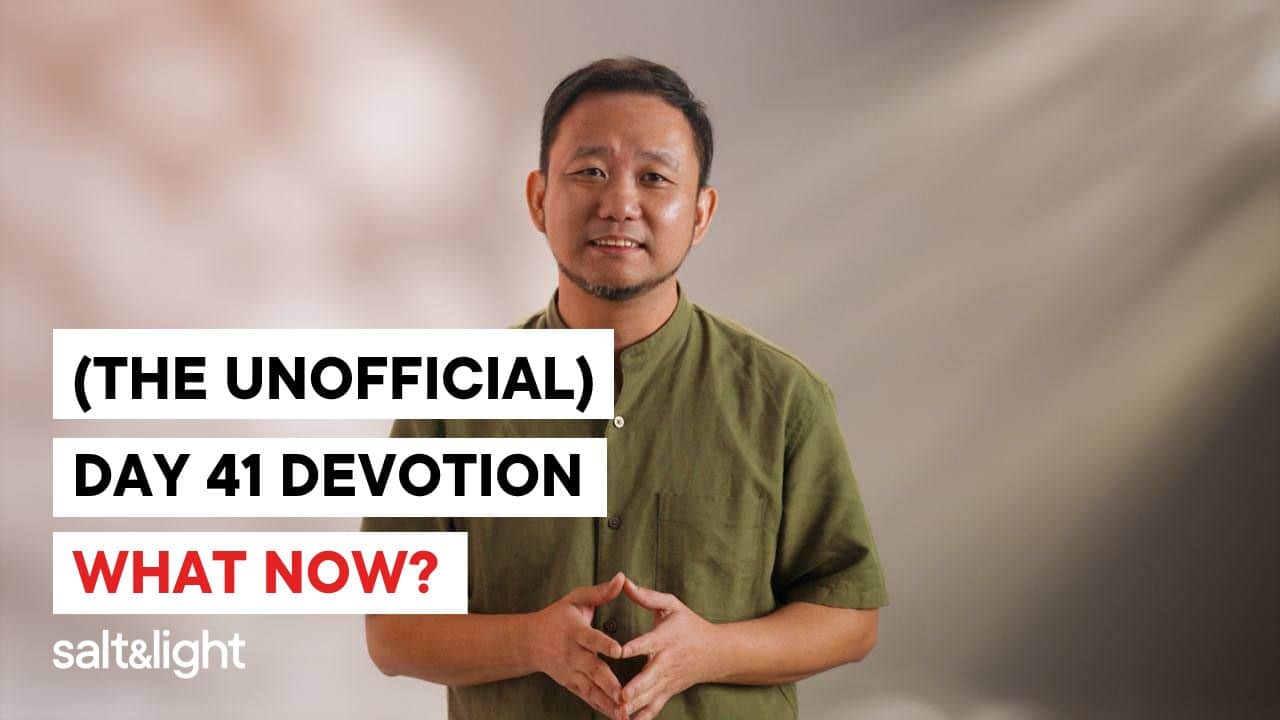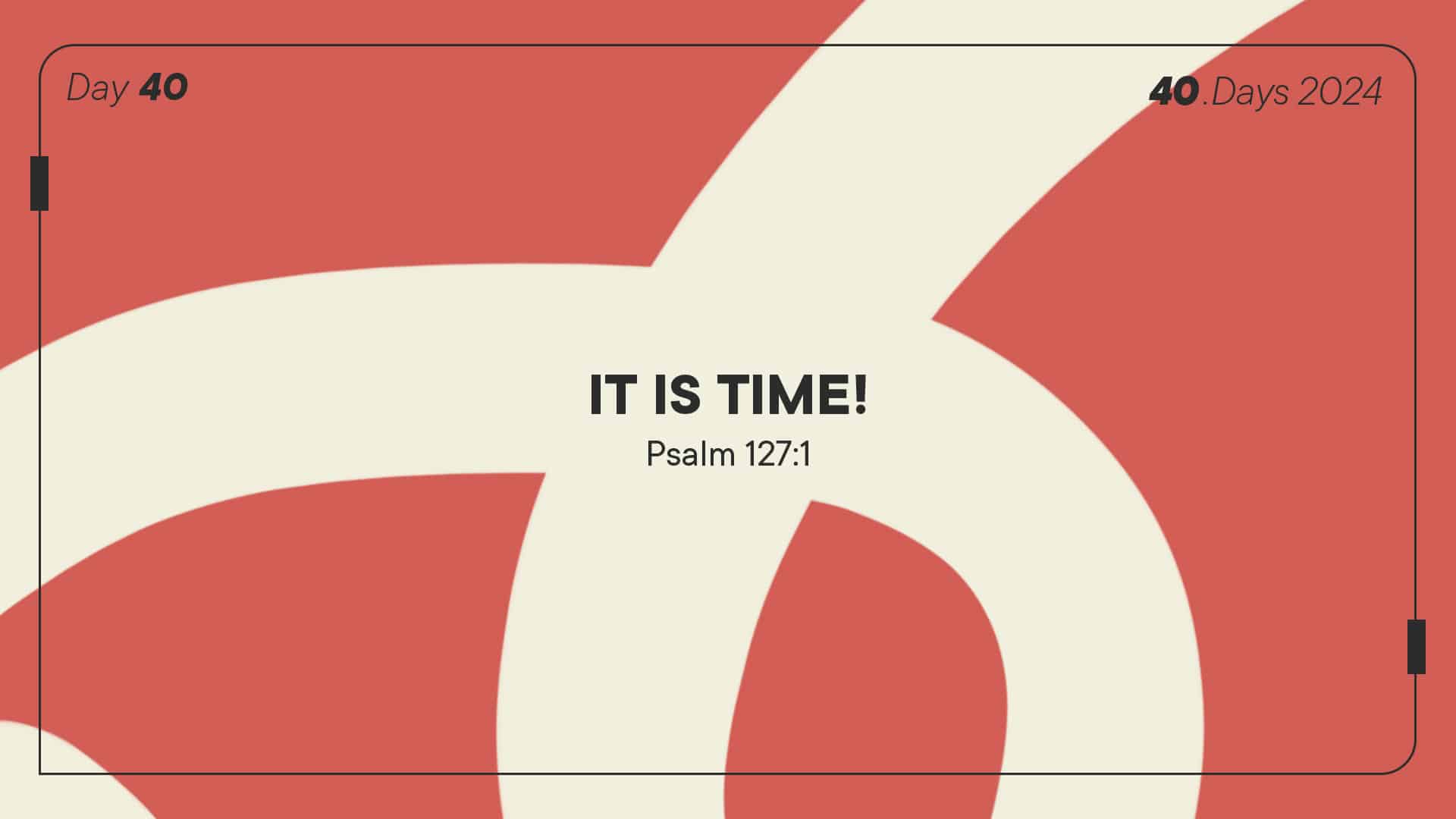![[Wide] July 13](https://saltandlight.sg/wp-content/uploads/2018/07/Wide-July-13.jpg)
Paul didn’t count decisions for Christ.
He made disciples of Christ. Having survived a stoning in Lystra, he went on to Derbe and made many disciples (Acts 14:21). Derbe is not far from Antioch, where this long journey began. And just about 25 kilometres along the way is Tarsus, where Paul was born and once found refuge from persecution (Acts 9:29–30).
How tempting it must have been for Paul to set his GPS for Tarsus. A warm kosher meal with family and friends would be something to die for.
But Paul had something better to die for.
Suffering is the hallmark of discipleship.
Risking life and limb, he followed the Gospel Positioning System (GPS) back through places where he had recently made disciples at the cost of severe persecution. His apostolic instinct told him that his mission there was not complete. Disciples needed strengthening and encouragement in the face of opposition. Suffering is the hallmark of discipleship: Through many tribulations we must enter the kingdom of God (Acts 14:22).
Christians who cut their teeth on triumphalism and the prosperity gospel are most likely to backslide under persecution (Matthew 13:21).
Where the Gospel is preached and disciples are made, the Church of Jesus Christ emerges without fail. During Paul’s brief absence, new churches had already formed in Lystra, Iconium and Antioch of Pisidia (Acts 14:21–23). But churches are not complete without elders.
There are no leaderless churches in the New Testament. Paul and Barnabas appointed elders in every church. Leaders you can trust. Not self-ordained. Not self-anointed. But well-chosen and appointed by apostles with prayer and fasting (Acts 14:23).
On returning to Antioch, Paul and Barnabas called the church together and related all that God had done with them, and how He had opened a door of faith for the Gentiles (Acts 14:27).
Before Antioch, the Early Church was for the most part a conservative Jewish community. But after Antioch, the Jesus Movement stripped off its Jewish clothing and became a universal faith that appeals to members of every race, religion, tribe and tongue.
This is the legacy of Antioch. Will it be the legacy of Singapore? Will we de-westernise the Gospel for members of other faiths who reject it in its western forms?
Will we take the hard way home?
Fast and pray
- Paul is an apostle with a pastor’s heart. He would not rest until he saw Christ formed in his disciples (Galatians 4:19). Who is a disciple according to Paul? Three things stand out in his writings:
• A disciple dies to self and imitates Jesus (Galatians 2:20, 4:19; 1 Corinthians 11:1).
• A disciple follows Jesus and participates in His mission (Acts 22:14–15; 2 Timothy 2:2)
• A disciple suffers with Jesus for the sake of the Gospel (Acts 14:22; 2 Timothy 2:3).
-
This is no different from what Jesus said: Whoever wants to be My disciple must deny themselves and take up their cross and follow Me (Matthew 16:24). What is the state of the Church? Are we producing disciples? How is your walk with Christ? Are you a practising disciple? If you have not taken discipleship seriously, turn to the Lord in repentance and prayer: Lord Jesus, I repent. I am a bundle of contradictions. Part of me wants You and part of me wants life on my own terms. I am guilty. Forgive me. I fall for what is convenient. I flee from what is costly. I confess, I am half-hearted. I am double-minded. Forgive me, my wishy-washiness. I want to go beyond the motions of Sunday church. Beyond merely knowing about You in my head. Come into my heart. Be Lord of my life. I want to grow in intimate friendship with You. Give me courage to be Your disciple. To bear my cross. To die to self. To live for You. To imitate those who imitate You until I bear Your image.
- Paul was a disciple-maker par excellence. Like Jesus, he practised relational discipleship in community. We busy Singaporeans, however, are reluctant. We make excuses. We claim we have no time. No time to be discipled. No time to disciple others. No time to be relational. Ask God to forgive us our wrong perspectives and our misplaced priorities. Ask Him to renew our minds to think His thoughts and re-fire our hearts to practise relational discipleship His way — in community. For the long-term good of the Church, pray for fathers and mothers to lead the change and restore the family as the basic unit of discipleship.
- Think biblically. Act responsibly. New Testament churches were led by elders who were under apostolic authority. In our postmodern world, however, we now have a range of fashionable alternatives: organic church, internet church, starfish church, leaderless church. Where is accountability? The problem is not with the form, but with the fundamentals. Revival is a return to the blueprint of the Church Jesus builds according to the Gospel and Acts. Pray for genuine revival.
- The harvest is plentiful (Luke 10:2). Locally, for the longest time, we have been fishing in the same pond of English-speaking Chinese Singaporeans. Globally, we have been going for the easy pickings, the low-hanging fruit. Ask God to open our eyes to see the neglected harvest all around us. Pray for open doors among the hard-to-reach peoples in Singapore and our region. Let’s take the hard way home.
Read the devotional from Day 12: Damage Control here.
We are an independent, non-profit organisation that relies on the generosity of our readers, such as yourself, to continue serving the kingdom. Every dollar donated goes directly back into our editorial coverage.
Would you consider partnering with us in our kingdom work by supporting us financially, either as a one-off donation, or a recurring pledge?
Support Salt&Light



